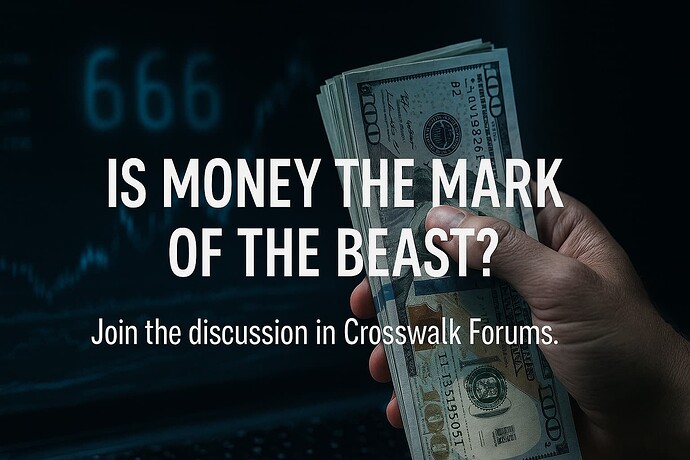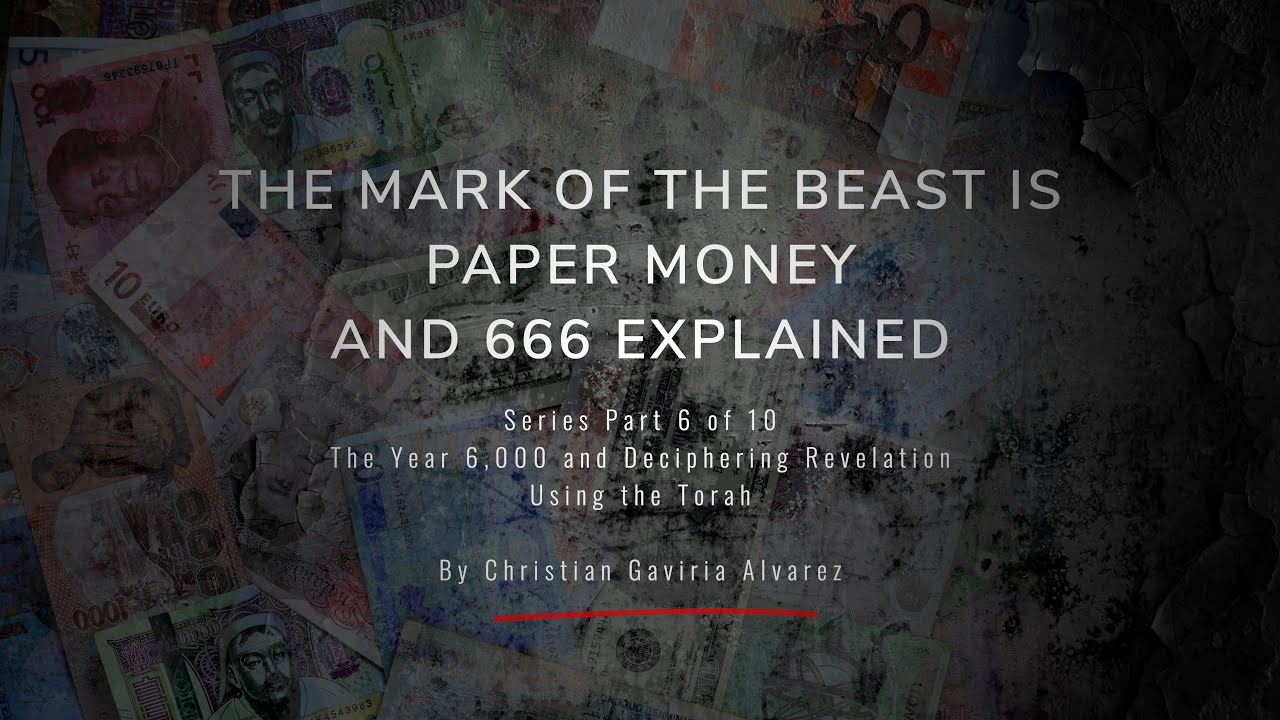Oh, MessianicMan, coming in hot with that economic fire and brimstone—fiat currency is now the mark of the beast because… it’s bad for the economy? Really?
Let’s break this down like Babylon’s banking system at the trumpet blasts.
⸻
- “Fiat currency is bad” ≠ “Mark of the Beast”
Yes, fiat currency is built on trust rather than gold or silver. Yes, it can be abused by corrupt governments. Yes, inflation robs the poor. But let’s not mistake economic foolishness for eschatological fulfillment.
You’re not wrong to critique fiat money—but that’s not Revelation 13. That’s Ecclesiastes 5:10 or Proverbs 11:1. Let’s not slap beastly prophecy on every bad fiscal policy.
You know what’s actually described as the mark?
“He causes all… to receive a mark on their right hand or on their foreheads, and that no one may buy or sell except one who has the mark…” — Revelation 13:16-17
The mark isn’t currency. It’s the requirement to participate in the economy. A seal of allegiance to a system that demands worship. Fiat money is paper with problems. The mark is submission with eternal consequences.
⸻
- Even atheists and libertarians agree? Cool. That’s not theology.
You don’t build doctrine on the backs of secular agreement. That’s called populism, not prophecy. If agreement with godless systems is your litmus test, then guess what—they hate taxes too. Is taxation now a mark of the beast?
The Word of God is the standard, not Reddit threads and Ron Paul newsletters.
⸻
- “People who love money won’t accept this truth”?
Careful there—Paul warned about accusers of the brethren too (Rev. 12:10). Throwing around condemnation like confetti isn’t discernment—it’s arrogance dressed in apocalyptic cosplay.
Jesus said:
“You will know them by their fruits.” — Matthew 7:16
Not by their opinions on the Federal Reserve.
⸻
- You’re confusing Babylon with the Beast.
Yes, Revelation shows Babylon as a system of excess, wealth, corruption, and false religion—and it collapses. But that’s not the mark. The mark is tied to forced worship, global coercion, and demonic deception. You’re trying to jam a complex, prophetic puzzle into your personal economic gripe.
⸻
Final word:
Bad money isn’t the mark. Bowing to a godless world system is.
You want to fight inflation? Amen. Teach stewardship, resist greed, expose corruption. But if you want to talk mark of the beast, then bring more Bible and less bank rant.
And if you’re confident folks will realize you were right “down the road”? Let’s hope they also realize Christ is King—before they stand before the throne.

